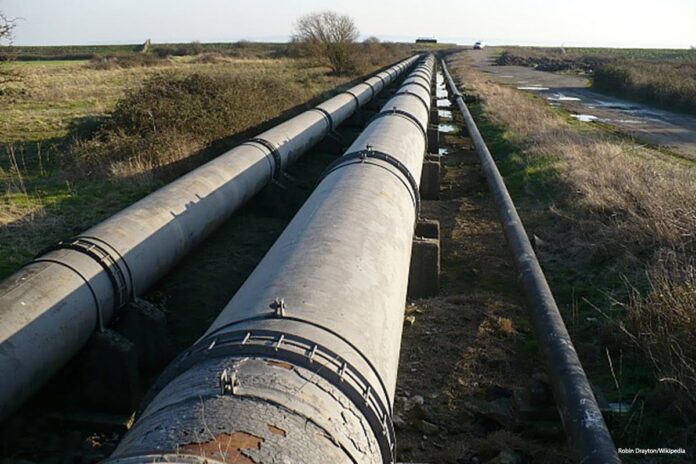Pakistan’s gas transmission and distribution system faces significant risk due to a sharp increase in line pack pressure, reaching 5.13 billion cubic feet (bcf) as of May 5.
According to a media report, the pressure in the gas transmission system was maintained at manageable levels of 4.570-4.97 bcf between May 5 and May 25. However, the pressure has now soared to critical levels due to the reduced use of Re-Gasified Liquefied Natural Gas (RLNG) by the power sector, a senior official reported.
“On May 25-26, the gas system came under duress primarily due to the reduction in RLNG usage by the power sector,” the official stated, warning that the pipeline is at risk of bursting as gas pressure rises above the 5 bcf mark.
The line pack pressure reached 5.13 bcf on Sunday, slightly down from 5.17 bcf on Saturday. Local Exploration and Production (E&P) companies have cut gas flows by 176 mmcf, from 783 to 605 mmcf, jeopardizing gas field operations.
On the other hand, the power sector has decreased its RLNG usage to 475 mmcf for electricity generation, causing the line pack pressure to rise to 1.530 bcf, further straining the gas transmission system.
Gas consumption in the fertiliser industry is at 52 mmcf, up from 40 mmcf on Saturday, with low RLNG consumption (24 mmcf) by Fatima Fertilizer following the restart of their plant on May 24 after Annual Turn Around (ATA). Engro Fertilizer’s system gas consumption was suspended on April 22 for a 54-day ATA.
With the current RLNG consumption rate at 32 mmcfd, data indicates extreme high-pressure conditions across the transmission network due to the reduced RLNG offtake by the power sector.
Authorities have begun reducing gas flows from local gas fields into the Sui Northern Gas Pipelines Limited (SNGPL) system to lower the line pack pressure. However, this poses significant risks to maintaining current local gas production levels.
E&P companies have repeatedly warned against the practice of decreasing local gas flows to protect the gas transmission system.
Reducing natural gas flows from wells nearing depletion can cause irreparable damage, requiring costly artificial lift methods to resume production, the official noted.
























